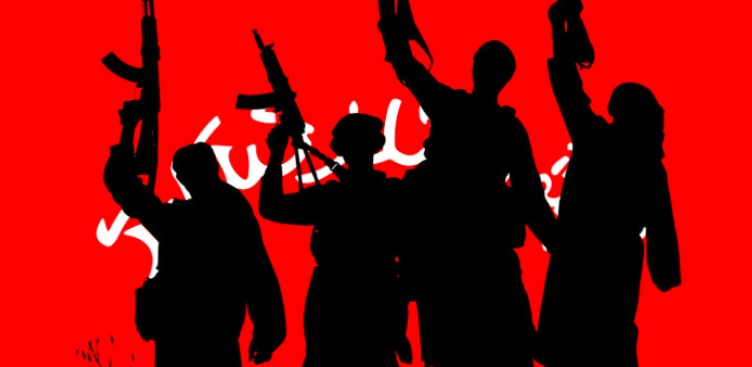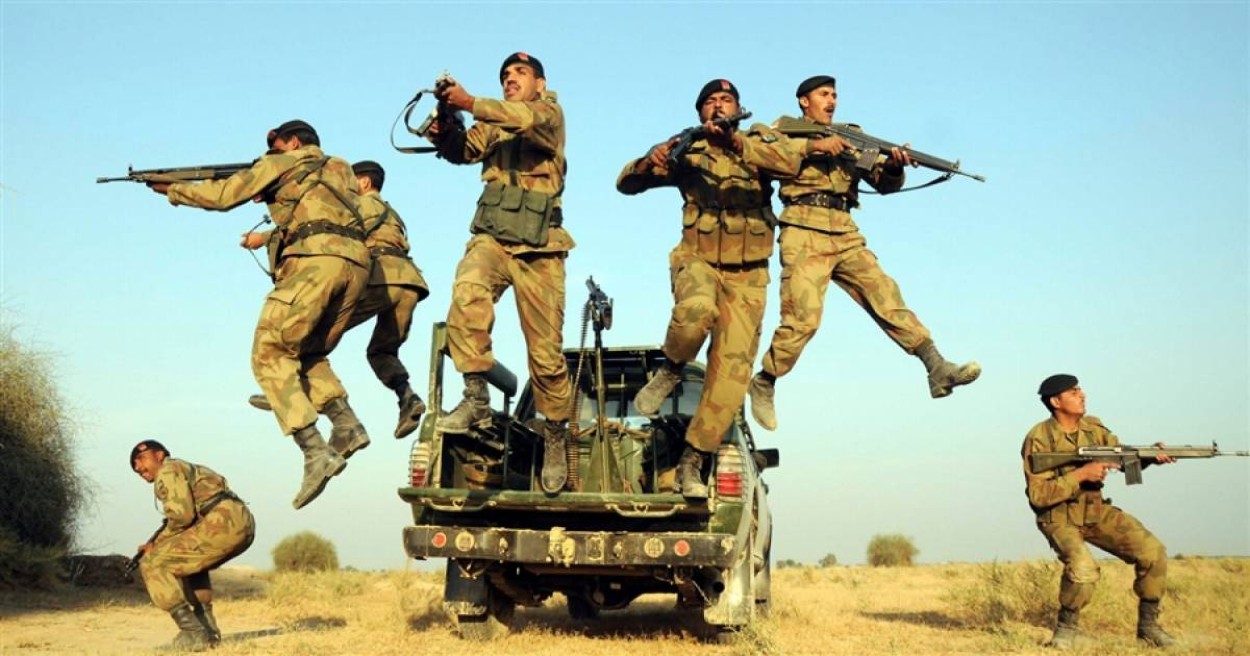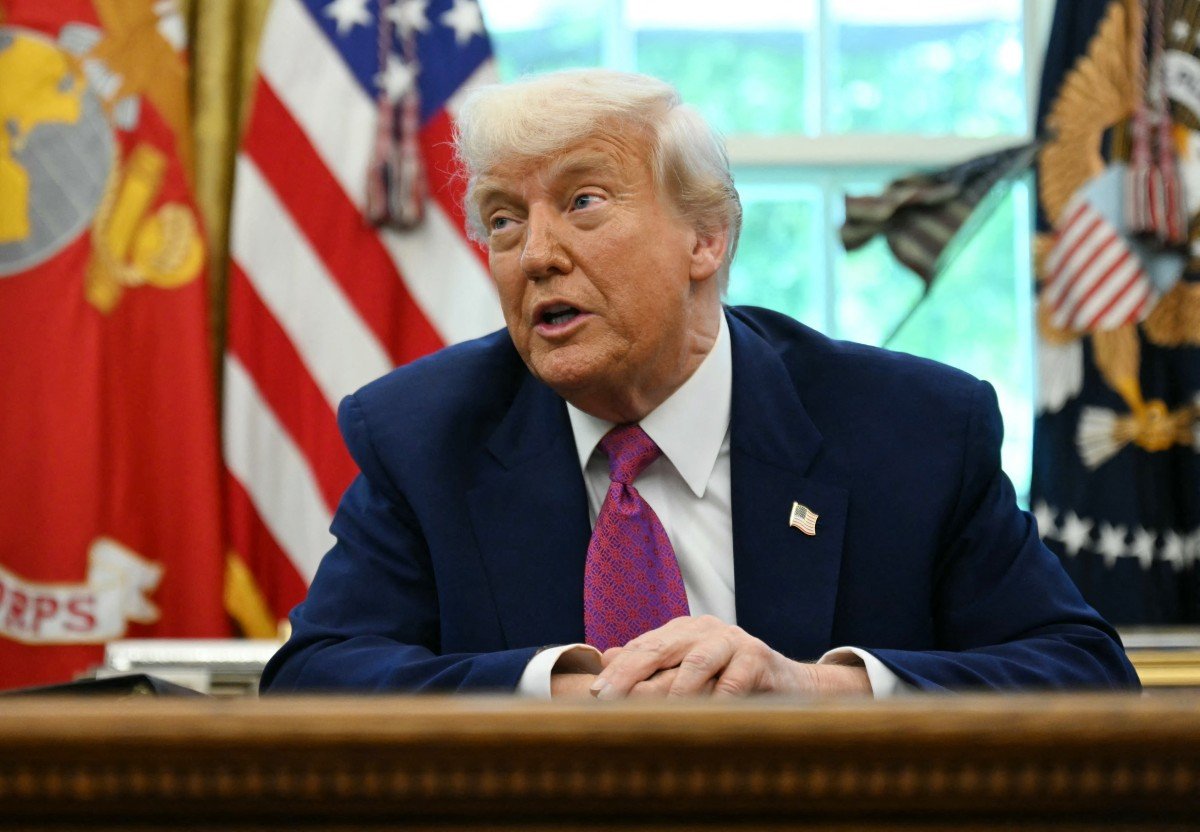In this age of info war, it is becoming increasingly difficult to know what the reality is on the India-Pakistan front. In a sense, the disinformation war that was seen during the war in Ukraine is being replicated now in the ongoing drone/missile war between India and Pakistan over the last three days.
If you watch the Indian television news channels, India is winning the war overwhelmingly by attacking all parts of Pakistan. But if you read the social media of Pakistan (as one cannot see their news channels in India), then Pakistan has already attained a massive victory over India by not only foiling the Indian attacks but also destroying its military installations in Punjab and Jammu and Kashmir and shooting down highly expensive fighter planes like Rafale and Su-30.
According to a dispassionate and respected source, India is more systematic in the ongoing disinformation war than Pakistan.
While New Delhi has ensured that Pakistani channels are not easily accessible to Indians, it is deliberately feeding all misinformation to Indian news channels that are watched by millions of Pakistanis. The idea is to inject elements of fear among the Pakistanis.
Interestingly, while Pakistan has banned many things Indian, including films, it has not done so effectively as far as Indian news channels are concerned.
There is a theory that the Pakistani establishment needs Indian news channels the most when it launches a terrorist attack or wages limited wars against India.
Both during the Kargil war and the attacks on Mumbai, the Pakistani handlers were getting all the information about what the Indian security forces were planning and how they were fighting the terrorists/aggressors on the ground, thanks to the hyperactive Indian news channels and journalists.
Of course, now the Indian authorities have curtailed the easy access that the Indian news channels had those days when operations were on. But Pakistanis still think that the Indian channels are sources of authentic information.
And this being the case, in the ongoing artillery exchanges between the two countries, the military leadership in India is deliberately feeding misinformation to the Pakistanis, the argument goes.
Therefore, nobody can be sure what India is doing or will do.
For instance, Indian media has been flashing reports about JF-17 shootdown, capturing F-16 pilot, hunting Pakistan’s AWACS, bombing Karachi port, etc. This could well be an Indian strategy to unnerve Pakistan and pressure its ‘rogue’ military.
This big question still remains: “How should India deal with Pakistan?” So far, the standard Indian policy towards Islamabad is that “ a stable and secure Pakistan is in India’s national interest.”
It is now time to revisit that policy.
Hard Facts
Let us point out some hard facts about Pakistan. First, it is meaningless for India to talk to any civilian leader of Pakistan. The ultimate decision-maker in Pakistan, as far as India is concerned, happens to be the Army Chief.
Therefore, if there is to be any breakthrough in the India-Pakistan impasse, New Delhi should insist that the Pakistani Army Chief, Asim Munir, be directly involved in the talks.
Let us not forget that Pakistan is essentially an “Army with a country”.
Secondly, unlike China, which is and can be India’s rival and partner simultaneously, Pakistan will always behave as India’s enemy. Come what may, it will continue to promote jihad in Kashmir and other parts of India.
Indeed, it is a huge myth that Pakistan will shed its hostility to India if the Kashmir issue is resolved on Islamabad’s terms. Even if Kashmir joins Pakistan, Islamabad will find another issue to trouble India.
This is because Pakistan’s antipathy towards India is deep-rooted. Pakistan’s very existence as an entity depends on hostility towards India. Take India away, and Pakistan’s justification as a separate country on the map of the world will hold no water.
And this explains why the Pakistan Army promotes fundamentalist mullahs in the country and uses them in tirades against India through terrorist organisations like the LeT. Their fundamentalist Wahhabi Islam negates the Sufi tradition that promoted Hindu-Muslim amity and coexistence in the subcontinent for centuries.
So much so that many Pakistanis now suffer from some identity crisis — they are not sure whether they should retain their age-old cultural roots (that are influenced by Hinduism) or develop totally new “Arab identities”.
It is increasingly becoming obvious that General Munir is the most communal Army Chief after Zia-ul Haq. It is he who orchestrated the latest terror attack on India at Pahalgam.
Just days before that dastardly attack, General Munir had boasted of how Pakistan has a “superior ideology and culture” than that of India and how “our forefathers thought that we are different from the Hindus in every aspect of life. Our religions, our customs, traditions, thoughts, and ambitions are different. That was the foundation of the two-nation theory that was laid.”
It is true that Pakistan was created as “a state for Muslims”. But for the likes of General Munir and hardliner Mullahs, Pakistan is an “Islamic state”. For them, India is an eternal enemy, and the very identity of Pakistan is based on hatred and animosity towards India. And they seem to be increasingly dominant in Pakistan’s political and public discourse.
Not long ago, in one of his judgments, Pakistan’s former Chief Justice Iftikhar Muhammad Chaudhry reportedly asked, “Should we accept if tomorrow Parliament declares secularism, and not Islam, as the state policy?” Another judge asked, “Will it be called a rightful exercise of authority if tomorrow parliament amends Article 2 of the constitution, which states that Islam will be the state religion?”
However, this most unfortunate trend is spreading among the Pakistani intelligentsia as well. For instance, Majid Nizami, editor-in-chief of The Nation, one of Pakistan’s leading newspapers, had once written that “Pakistan is destined to defeat India because our horses in the form of atomic bombs and missiles are far better than Indian ‘donkeys.’
According to him, “if one wants to have an idea as to what would have been our condition, had Pakistan not come into existence, he should visit India to apprise himself about the untold pathetic living conditions of the Muslims there at this point of time.”
Nizami added, “We were grateful to the Almighty Allah that today we had been blessed with Independence. The day is not far off when we would once again conquer India.”
If one goes by the history books written for students in Pakistan, the intensity of the anti-India venom and the ferocity with which it is being injected into young minds are mind-blowing. They are taught that “Previously, India was part of Pakistan.”
In these books, Muhammad bin Qasim, the first Muslim conqueror of the Hindu-dominated Sindh province in the 8th century, is declared the first Pakistani citizen. In Social Studies for Class VI (Sindh Textbook Board, 1997), the story of the Arabs’ arrival in Sindh is counted as the first moment of Pakistan, with the glorious ascendancy of Islam.

This textbook teaches that “The Muslims knew that the people of South Asia were infidels and they kept thousands of idols in their temples.” The Sindhi king, Raja Dahir, is described as cruel and despotic. “The non-Brahmans who were tired of the cruelties of Raja Dahir joined hands with Muhammad bin Qasim because of his good treatment.”
According to this historical narration, “Pakistan came to be established for the first time when the Arabs led by Muhammad-bin-Qasim occupied Sindh and Multan in the early years of the eighth century, and established Muslim rule in this part of the South Asian subcontinent. Pakistan under the Arabs comprised the Lower Indus Valley.”
It is interesting to note the flight of imagination of this author: “During the 11th century, the Ghaznavid Empire comprised what is now Pakistan and Afghanistan. During the 12th century, the Ghaznavids lost Afghanistan, and their rule came to be confined to Pakistan…By the 13th century, Pakistan had spread to include the whole of Northern India and Bengal…Under the Khiljis, Pakistan moved further southward to include a greater part of Central India and the Deccan… Many Mongols accepted Islam. As such, Pakistan remained safe for Islam… During the 16th century, ‘Hindustan’ disappeared and was completely absorbed in ‘Pakistan’…Although Pakistan was created in August 1947, yet except for its name, the present-day Pakistan has existed, as a more or less single entity, for centuries.”
Interestingly, Pakistani students are being taught that though Akbar was a great Mughal ruler, Islam declined during his rule as he was influenced by the Bhakti movement that began during the Sultanate period and propounded Hindu-Muslim unity. They are also taught that the glory of Islam was at its best during the reign of Aurangzeb, displaying “the Pakistan spirit.”
Thus, systematic attempts are being made by the Pakistani government to brainwash the students in schools and universities that there are irreconcilable differences between the Hindus and Muslims and that they, with their diametrically opposed world views and interests, could not have stayed together in an undivided country that India was until 1947.
In fact, Pakistan’s National Education Policy of Pakistan clearly says that the curricula should be specifically designed to “inculcate among the students the sense of gratitude to Almighty Allah”, to “promote the unity of Muslim Ummah in the world”, to “develop and practice the spirit of the ideology of Pakistan and Islam”, and to “inculcate a strong sense of gratitude to Almighty Allah for his blessings providing us an independent state”.
With such tendentious imaginings against India being legitimised by the successive governments in Pakistan, the Muslims there are forgetting the centuries-old tradition of pluralism that enriched the subcontinent, giving rise to many faiths and religions, including Sufism that guided them. Unless this entrenched anti-India mindset of the Pakistanis is changed, India will remain their eternal enemy.

Erosion of Indian power, dismemberment of its territories, and consolidation of an anti-India geostrategic nexus are Pakistan’s predominant strategic goals.
Pakistan’s war against India is no longer confined to Kashmir. Pakistan wants to Balkanise India by cutting off the country’s northern, eastern (North-East), and southern (Kerala) wings.
In fact, Mushahid Hussain, once a former information minister under Nawaz Sharif, has argued that Pakistan should work towards dividing India into three or four independent countries. Simultaneously, Pakistan’s ISI machinery will concentrate on widening the Hindu-Muslim divide, spreading hatred, and destroying India’s inherent ethos of communal harmony.
This being the case, India needs to reappraise its fundamental policy towards Pakistan. Fortunately, India has a Prime Minister in Narendra Modi, who hails from the south of Vindya and can think rationally about Pakistan.
It may be recalled that WikiLeaks documents revealed how the then Indian national security advisor M K Narayanan had once indicated to his American interlocutors, and that too, in the presence of the then Prime Minister Manmohan Singh, that persons living in the south of Vindhyas were better placed to frame India’s policy towards Pakistan. One sees some merits in that argument.
Invariably, we have seen that leaders hailing from North India, including those who were born in what is today Pakistan, are often more emotional rather than rational when dealing with Pakistan.
No wonder Prime Ministers like Manmohan Singh, I K Gujral, or, for that matter, even Atal Behari Vajpayee always found virtues in Pakistani leaders’ India-related “statements” by overlooking their India-related “activities.”
Pakistan needs to be handled realistically, not emotionally, by India. Modi seems to have initiated this process by suspending the Indus-Water treaty, arguably one of the most unequal treaties in the world. Bringing back the Pakistan-occupied Kashmir to the Indian national mainstream should at least be the logical corollary.
- Author and veteran journalist Prakash Nanda is Chairman of the Editorial Board of the EurAsian Times and has been commenting on politics, foreign policy, and strategic affairs for nearly three decades. He is a former National Fellow of the Indian Council for Historical Research and a recipient of the Seoul Peace Prize Scholarship.
- VIEWS PERSONAL OF THE AUTHOR
- CONTACT: prakash.nanda (at) hotmail.com







